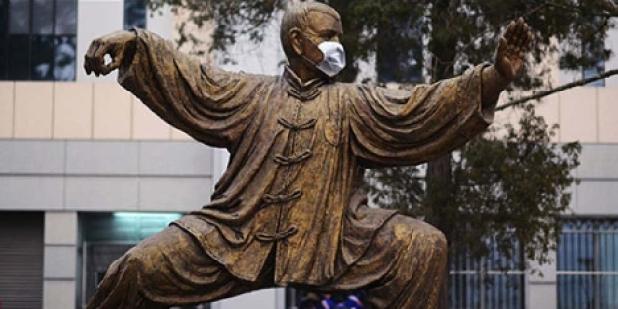Join us for a free one-day workshop for educators at the Japanese American National Museum, hosted by the USC U.S.-China Institute and the National Consortium for Teaching about Asia. This workshop will include a guided tour of the beloved exhibition Common Ground: The Heart of Community, slated to close permanently in January 2025. Following the tour, learn strategies for engaging students in the primary source artifacts, images, and documents found in JANM’s vast collection and discover classroom-ready resources to support teaching and learning about the Japanese American experience.
Air/Qi Connections: Notes from the History of Science and Medicine
The UC Berkeley Center for Chinese Studies presents a talk with Ruth Rogaski, professor of History at Vanderbilt University, and Wen-hsin Yeh, professor of History at UC Berkeley.

The UC Berkeley Center for Chinese Studies presents a talk with Ruth Rogaski, professor of History at Vanderbilt University, and Wen-hsin Yeh, professor of History at UC Berkeley.
What is the relationship between the air we breathe (in Chinese, kongqi) and the qi of Chinese medicine? This talk explores the history of this intersection in order to better understand the cultural underpinnings of the connection between health and environment in China today. Typically translated into English as “vital energy,” qi has long been at the core of traditional Chinese conceptions of nature, the cosmos, and the human body. In classical medical texts, qi was intimately linked to air, but qi could not be reduced to an equivalence to atmosphere alone. Ever since the European Jesuits tried to tutor Chinese scholars about the Four Elements, Westerners had attempted to persuade Chinese to embrace "air" and leave qi behind. By the late nineteenth century, translated texts about chemistry, physiology, and medicine began with treatises on the existence of air and gas. Impacted by these texts, physicians of Chinese medicine selectively adopted certain aspects of Western science into their understanding of qi, yet maintained an understanding of qi as something that went beyond air. The talk concludes with some musings about the relationship between qi and air today, in an era when enthusiasm for the health benefits of qigong coexists with the presence of an increasingly unbreathable atmosphere.
Featured Articles
Please join us for the Grad Mixer! Hosted by USC Annenberg Office of International Affairs, Enjoy food, drink and conversation with fellow students across USC Annenberg. Graduate students from any field are welcome to join, so it is a great opportunity to meet fellow students with IR/foreign policy-related research topics and interests.
RSVP link: https://forms.gle/1zer188RE9dCS6Ho6
Events
Hosted by USC Annenberg Office of International Affairs, enjoy food, drink and conversation with fellow international students.
Join us for an in-person conversation on Thursday, November 7th at 4pm with author David M. Lampton as he discusses his new book, Living U.S.-China Relations: From Cold War to Cold War. The book examines the history of U.S.-China relations across eight U.S. presidential administrations.




